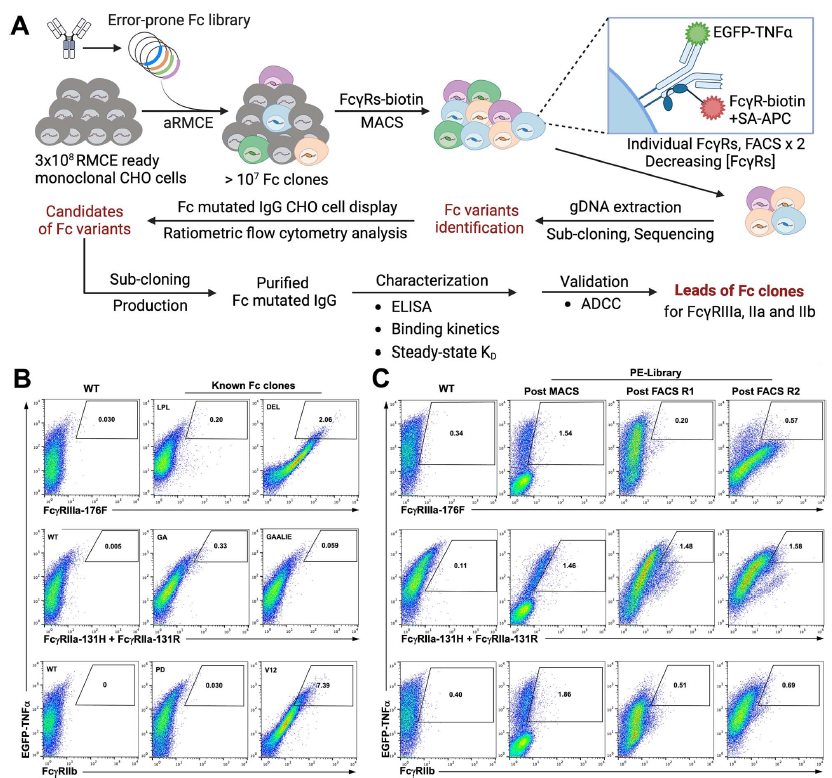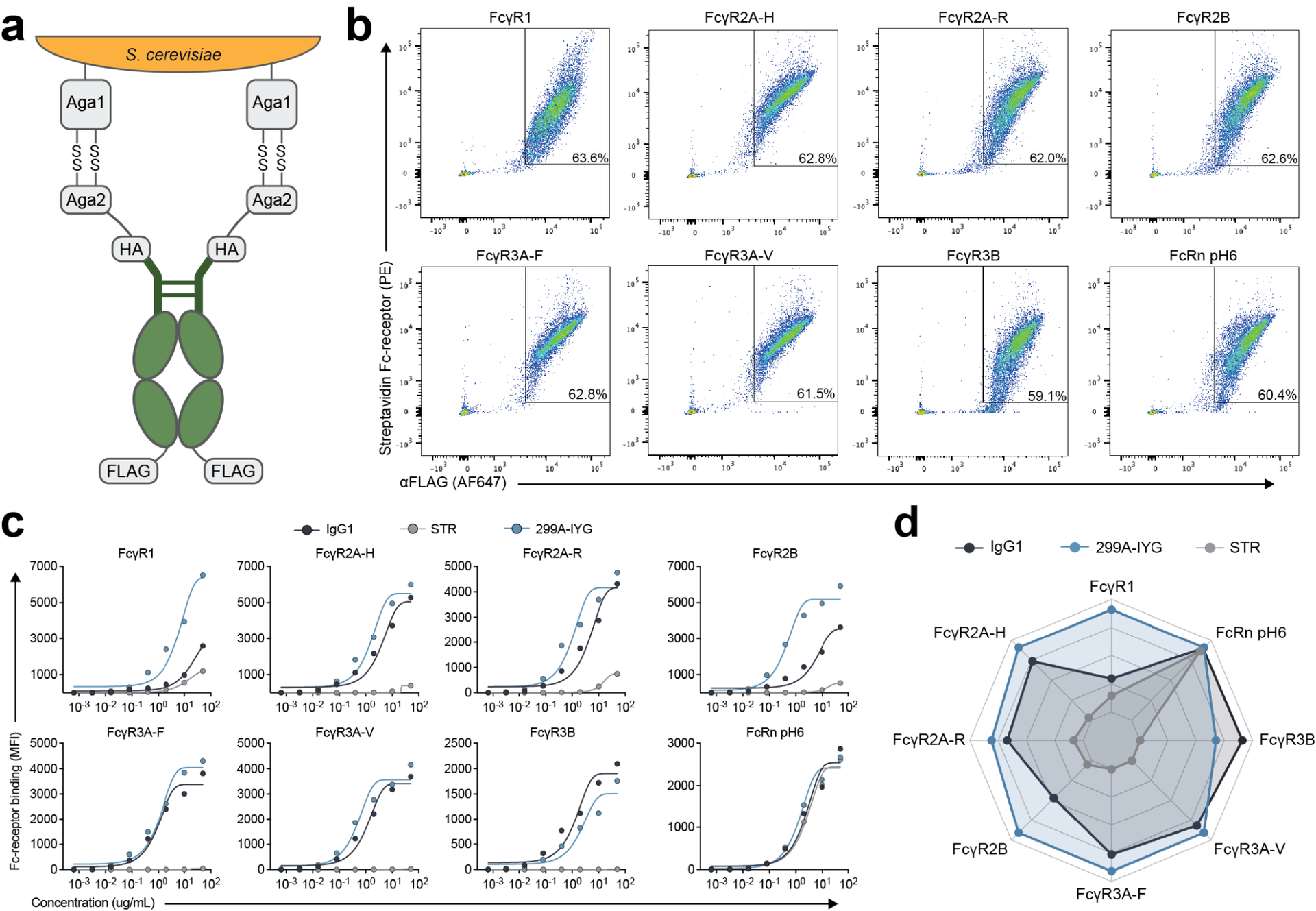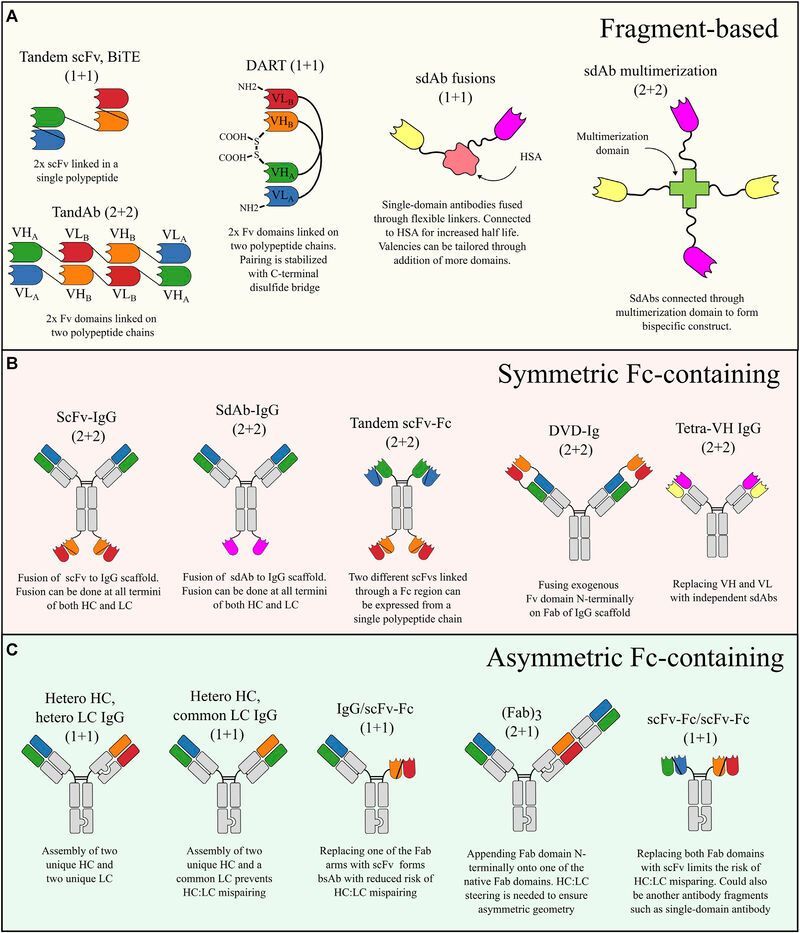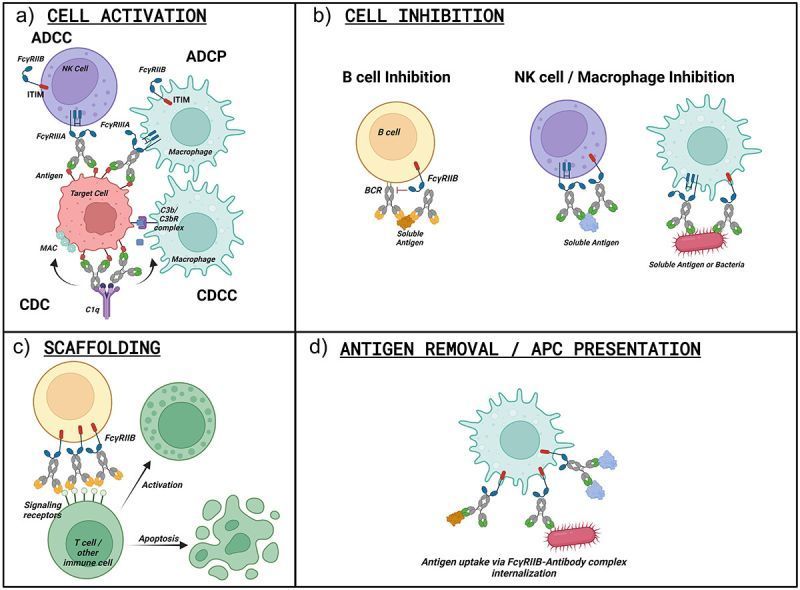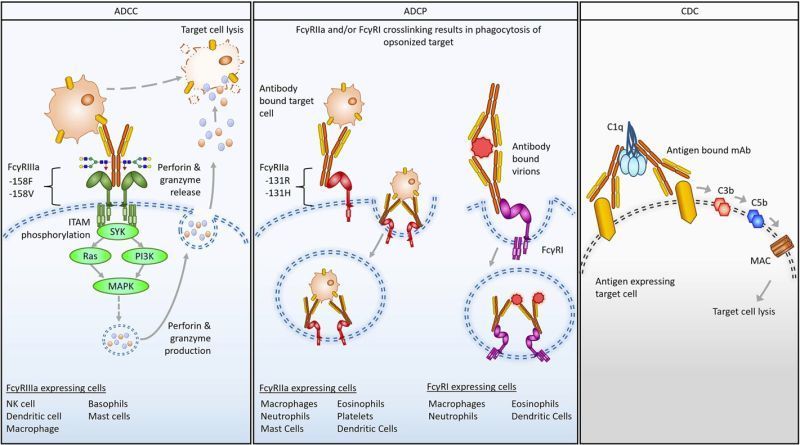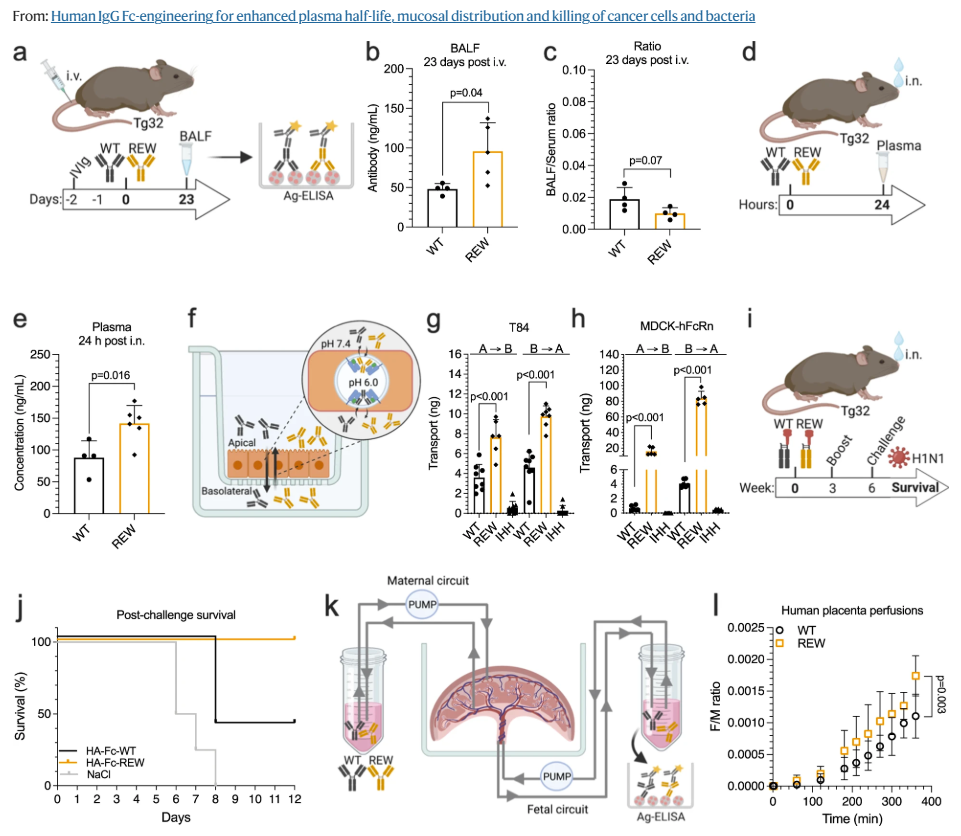Human IgG Fc-engineering for enhanced plasma half-life, mucosal distribution and killing of cancer cells and bacteria
The Fc Review:
One Fc variant, three advantages?
A Nature Communications study demonstrates how a single Fc-engineered IgG achieved improved half-life, mucosal distribution, and enhanced immune-mediated killing, across both cancer and bacterial models.
Background:
Fc engineering is often discussed through a single lens, half-life extension, effector boosting, or silencing. This paper explores a broader question: can an Fc variant containing three point mutations deliver multiple functional gains across different biological systems?
The review highlights:
- A modified Fc variant (Q311R/M428E/N434W) improved biodistribution in mucosal tissues.
- Enhanced killing via complement and immune effector mechanisms was observed, even at low antigen levels.
- Results were consistent across pathogen and oncology models, suggesting broad applicability of Fc design.
Implications:
Fc engineering can do more than optimize one pathway. Profiling engineered antibodies across multiple contexts may reveal capabilities not visible in single-endpoint assays.
Our perspective:
Understanding how Fc variants behave across different effector pathways is key to unlocking their full potential. Multiplexed profiling in human-relevant systems offers a way to uncover these effects early and guide design choices with confidence.
Want to catch up on previous entries in The Fc Review?
Access them here
